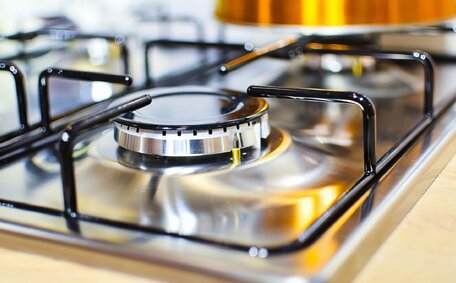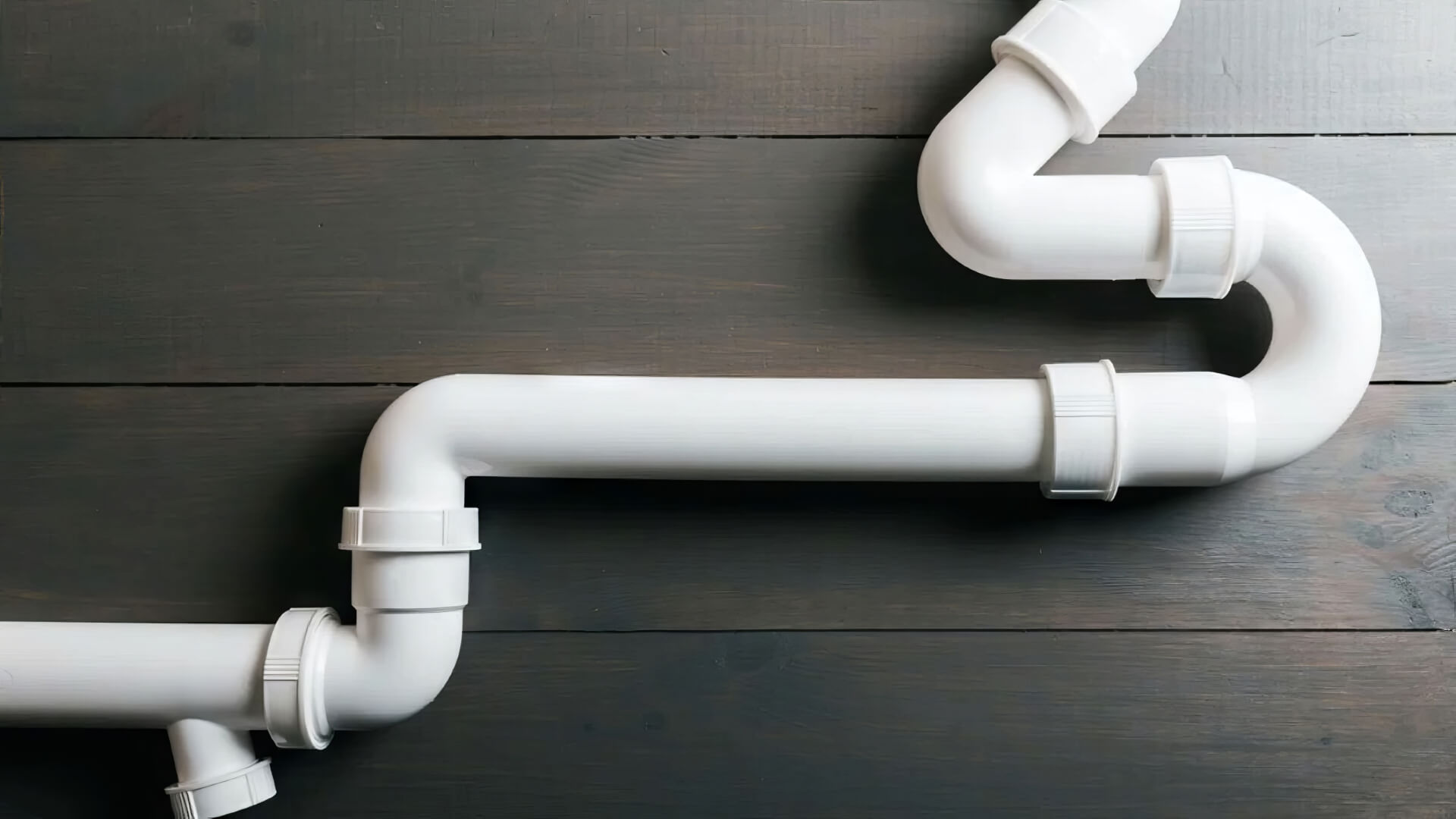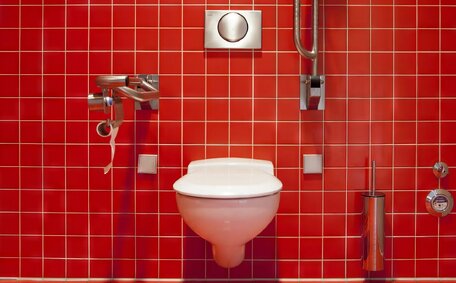Introduction to blocked drains and water pressure
Blocked drains may lead to reduced water pressure by restricting wastewater flow, causing backups that impede the pressure of fresh water entering your pipes and can affect all fixtures in your home.
Located in the Sydney metro area, properties in Campbelltown often experience pressure changes, and if you’re experiencing low water pressure, it could be due to blocked drainage, tree roots, waste debris, and various other issues. Professional services are often required to remove blockages in your drainage systems, particularly when high water pressure is involved. Our guide assists Campbelltown residents in understanding and fixing water pressure issues related to blocked drains.
How blockages restrict water flow and reduce pressure
Sediment, grease, tree roots, and debris can accumulate in drain pipes, compromising your sewer line. Blockages narrow your drains’ interior, causing backup and reducing the pressure they are designed to handle.
Reduced pipe space restricts water flow, decreasing throughput in plumbing systems, which affects water pressure. This steady decline can, in turn, negatively impact and potentially cause water issues for the incoming water your household requires from municipal lines or well pumps. Plumbing fixtures’ performance can also decline as less water reaches taps and shower heads, potentially indicating issues from your water supplier under lower pressure.
In Sydney, clogged drains have resulted in an average pressure drop of 35% in kitchen sinks, with losses of up to 25 PSI affecting hot water systems and appliance functionality.
Identifying symptoms of low pressure from drain blockage
Several issues, more common than you might think, manifesting around your home’s fixtures may signal how low water pressure can result from a blocked drain:
- Taps and shower heads have reduced flow, with sluggish streams or weak pressure
- Toilets exhibit problems flushing or require multiple flushes to clear
- Your shower may be hard to regulate, oscillating between scaldingly hot or cold temperatures.
- Sinks may drain slowly, indicating water is struggling to pass through pipes.
- Strange gurgling sounds emit from drains and sink overflow holes
- Foul odours arise from stagnant water, the perfect breeding ground for bacteria, backed up behind clogs, often indicating a potential water leak
These symptoms are often exacerbated if problems arise with municipal water systems, allowing roots, grease, debris, and other materials to accumulate in drain lines, choking flow. If you suspect drainage blockages are the culprit behind low water pressure, a licensed plumber can inspect your pipes and restore the proper water pressure your home needs for optimal functionality.
Common household items that cause drain clogs
Many items that are staples in your homes can become culprits, showing how a clogged drain can wreak havoc on your plumbing systems if washed down pipes:
- Hair and Soap - Hair and soap scum can accumulate in pipes, leading to dense obstructions.
- Food scraps - Fats, oils and solids build up inside drains, sticking to pipe walls.
- Personal hygiene products - Items like cotton swabs, dental floss and sanitary items get trapped in tight bends and can cause low water movement.
- Tree roots - Invading tree roots that breach pipe integrity in their quest for moisture can adversely affect your water circulation by choking off the flow.
As these household substances accumulate, pipe diameters can become narrowed, impeding wastewater drainage.
To reduce the risk of blockages, homeowners should avoid washing such items down drains. Even small amounts can accumulate into larger obstructions over time. Installing drain screens and regular pipe maintenance can help to prevent clogs and ensure smooth drainage.
Checking water pressure at different fixtures
If you experience sudden or severe drops in flow or pressure, an emergency plumber can use a pressure regulator to check your system and diagnose issues like burst pipes:
- Locate your main house water shutoff valve, commonly referred to as the stop tap, typically positioned near the front hose bib/tap or water meter. Turn this clockwise to shut off main supply.
- On the highest floor, turn on the shower to test the water heater pressure. Observe the flow strength and the hot water system’s capacity for temperature extremes.
- Repeat the shower test on each descending floor. Pressure and temp should be equal on all levels if unimpeded by blockages.
- Conduct flow tests at multiple sinks, monitoring changes in pressure and volume. Compare bathrooms farthest from and closest to the main water line.
- Flush toilets on every level and reference tank refill times, which indicate flow rate entering the bowl and can highlight a plumbing leak affecting your hot water consistency.
- If certain fixtures have low water pressure and others do not, contact a local plumber as this may indicate blocked branches or leaks affecting water delivery.
Evaluating household pressure performance often helps identify where drains can lead to leaks, problematic clogs, or damage in water pipes, thus limiting regular water movement. Skilled drain plumbers can deploy specialised plumbing cameras and pipe inspection equipment to get your suspected blockages in the main sewer lines concealed behind walls or beneath floors investigated.
DIY methods to clear minor blockages
Before contacting a professional, homeowners can try clearing minor drain clogs themselves using simple, inexpensive techniques:
Plunging
A standard sink or toilet plunger can often dislodge clogged drain obstructions, like hair and debris. Firmly place the plunger over the drain and pump vigorously to dislodge hair, soap scum and other blockages.
Boiling Water
Boiling water can dissolve grime and improve flow, helping clear the drain. Pouring boiling water down the drain helps soften and reduce grease buildup in pipes. Allow to sit for several minutes before flushing with cold water.
Baking Soda and Vinegar
The combination of abrasive baking soda and acidic vinegar is effective at tackling soap scum and other gunk. Pour 1 cup baking soda down the drain followed by 1 cup heated white vinegar and cover. A vigorous chemical reaction ensues, which can help dislodge stubborn grease.
Chemical Drain Cleaners
Commercial drain cleaners available at hardware stores target organic materials and mineral blockages. Always check product instructions carefully — one should never mix cleaners due to potential chemical reactions.
Attempt various DIY drain clearing methods, and if unresolved, contact a plumber as soon as possible to prevent further damage. Backed-up water jeopardises comfort and hygiene. If fixtures flood or emit sewer odours, it’s essential to contact a professional.
Seeking professional drain cleaning services
When DIY methods cannot alleviate blocked drains, it becomes necessary to contact professional plumbing services. As industry specialists equipped with advanced technologies, our service offers comprehensive solutions addressing challenging clogs, pressure issues, and stormwater drainage concerns.
Key Advantages of Professional Drain Cleaning
Licensed plumbers provide comprehensive solutions for severe obstructions, beyond the scope of homemade remedies:
- Industrial hydro jetting can blast through tough grease, roots, debris and hardened deposits that resist standard snaking.
- High-power electric augers reach deep blockages beyond hand rods’ typical range.
- Specialised plumbing cameras pinpoint the exact locations of elusive clogs during pipe inspections.
Professionals can:
- Ensure proper pipe repairs post-clearing to prevent recurrence.
- Provide documentation like drain reports when advising system upgrades.
Campbelltown’s Leading 24/7 Emergency Plumbers
Our experienced local plumbers guarantee a prompt and satisfactory resolution to water pressure issues and drain clogs in the Sydney area. Trust Campbelltown Plumbing for transparent pricing and guaranteed professional workmanship, ensuring a reliable water supply for your household.
Call our team today for affordable, tailored solutions to drain unclogging and water pressure issues for your property.
Preventing future clogs to maintain water pressure
Preventing drain clogs is key to ensuring adequate ongoing water pressure in your home. Some useful measures include:
- Install drain screens over sinks and showers to catch hair and debris, preventing them from entering your pipes.
- A monthly introduction of baking soda and vinegar into your drains can help maintain water pressure and dissolve grease buildup.
- Limit washing fats, oils and food waste directly down drains
- Have pipes professionally inspected and cleared annually to identify issues early
- Consider pipe relining or choosing low-flow showerheads and tap aerators to reduce flow demands on plumbing
- Promptly repairing cracks or leaks prevents subsequent root intrusion and maintains pipe integrity.
- Consider piping upgrades or relining if original lines are outdated or damaged
Effectively maintaining drains and plumbing helps preserve regular water pressure, which over time can prevent numerous issues. Our team is on hand to assist swiftly with persistent clogs or flow rate issues, offering expert plumbing solutions.






